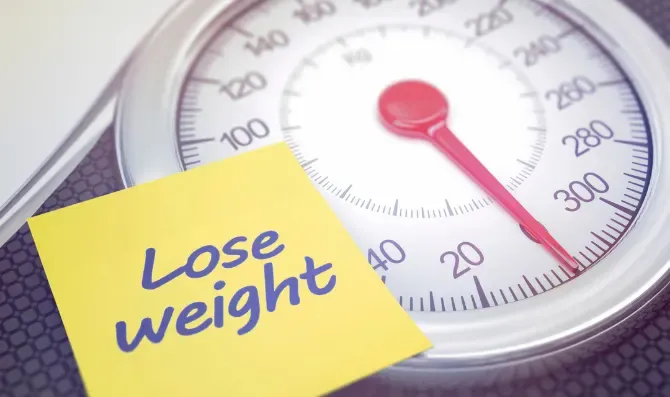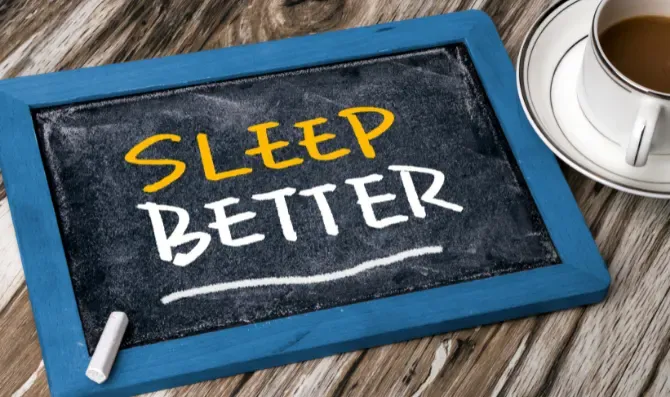9 golden rules for losing weight without diet

Can you lose weight without dieting? To lose weight, we must burn more calories than we consume. Certainly, but without any diet, even without deprivation, it is possible to lose weight to be healthier. And this is done without repeating since you will not have suffered deprivations, and you will not want to crack. So what are these little secrets?
Best Ways to Lose Weight Without Diet or Exercise

Eat from a dessert plate.
When you serve yourself your meal, you take ordinary plates. Change technique, choose the dessert plates.As the dessert plates are more minor, mechanically, you will serve smaller portions. And you'll take less. Study 1 shows, for example, that children serving themselves eat 45 calories less per day if they are offered small plates or small bowls instead of large plates and bowls. After a few months, this represents several pounds less.
Turn off the television.Eating while watching TV is fattening.
Simply because your mind, busy with information, does not realize that it is swallowing calories, and it does not count your food in the same way. Result: you eat more during a meal in front of your TV and even worse, you eat more at the next meal (even without TV), your body having the impression of not having really eaten! So, turn off the television at mealtimes… And think that the radio produces about the same effect, like a bad idea of reading or playing a video game while eating 1-3.Take your entry in advance.
A plate of grated carrots, an avocado, a slice of ham, half a grapefruit... Eat your starter at least 20 minutes before you really sit down to eat the main course.The feeling of satiety takes 20 minutes to appear. If you eat your whole meal in 15 minutes, you will eat significantly more because you do not feel complete until the end of the meal. This is why those who eat too quickly eat more and gain more weight 1.
Chew well
When you eat, do not swallow your bites raw. Chew, chew, take the time to mix your saliva with the food reduced to a pulp. And choose hard foods rather than soft ones.Chewing has an action on the brain, allowing it to perceive that you are eating. And 15 to 20 minutes after the start of these chewing gestures, your brain begins to produce neurotransmitters, in particular histamine, a message of satiety. If you eat porridge or puree, you won't be as complete, and you'll eat more, gain more weight... or lose weightlessly!
Snack on almonds and walnuts
f you want to eat between meals, don't deprive yourself but choose walnuts, almonds, hazelnuts as a priority ...People who add this type of food to their daily ratio do not gain weight. While those who eat chocolate bars sweets, yes! Some studies even show that a small consumption of oleaginous fruits would make you lose weight. Be careful; choose plain fruit, neither grilled nor salted 1,2.
Sleep well

People who sleep between 8 and 8.5 hours have the lowest body fat weight. People who sleep less than 6.5 hours or more than 8.5 hours per night have a higher weight. On the other hand, having regular sleep schedules allows you to be slimmer: if you don't vary your bedtime and wake-up time by more than 60 minutes, you will be slimmer than if you vary by more than 90 minutes (i.e., an hour and a half your bedtime). So, to lose weight, a lie-in, why not, but not more than an hour! And the regular party in the evening, it makes you fat… 1
Listen to your biological clock
respecting your biological clock is very important in order not to gain weight. This consists of choosing the correct times for your meals, according to your periods of activity: Chrono nutrition. Within an hour of waking up, have a breakfast made up of more fatty products (cheese, cold cuts, etc.) than sugary ones. Within 4-6 hours: Eat a protein and vegetable-based lunch. As a snack in the afternoon, eat a piece of fruit. At the end of your active day, eat a light dinner.Driveaway the stress
Stress, if it is chronic, has repercussions on the body. It increases the production of cortisol, the stress hormone, which leads to weight gain by disrupting the body (erroneous feeling of satiety, difficulty recognizing hunger, etc.)Similarly, emotions that generate stress promote snacking and excess weight.
By learning to relax and better manage your emotions, you have a better chance of staying in shape.
Focus on the right foods
Keeping the line requires a minimum of knowledge in nutrition: you have to learn to identify the most caloric foods which are not always those you believe in and replace them advantageously. It is better to prefer pretzels as an aperitif, for example, than light chips; for the dish, it is better to bet on chicken rather than beef, and for dessert, choose a sorbet rather than a chocolate cake. However, we must always keep the pleasure dimension and eat food that makes us really want, even if it is caloric, provided it is not every day.How to lose weight without diet or exercise
Restrictive diets didn't make you lose weight, or did you gain it all back?
Better not go on a diet to say goodbye to your extra pounds.
" Restrictive diets don't work. " We are talking here about caloric
restriction, not changing eating habits that some call a diet. "There are
even people who become obese by dint of dieting all the time," she informs.
Many mechanisms explain that calorie restrictions lead to weight gain and
additional weight gain. "The mechanisms of adaptation are well known: among
other things, the body adapts to limit the needs of the body, it then goes
into saving mode , the thyroid slows down, there is an adaptation of the
microbiota , it causes you to lose mass muscle or it contributes to the
metabolism, "details the nutritionist.
The basis of weight loss is understanding overweight. "Today, the concept of
being overweight linked to consuming more calories than you burn is
obsolete. Also, you have to get out of the only existing model of weight
loss which consists of counting calories ".
Weight gain can be genetic (we are not equal in front of the scale), linked
to environmental factors (endocrine disruptors...) to insulin resistance, to
stress. This is why if overweight is not explained by obvious dietary
errors, it is good to be accompanied by a professional (nutritionist or
dietician) who will try to understand the problem, in particular with a
blood test.
Read More:
Post a Comment